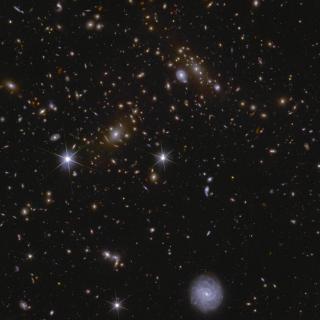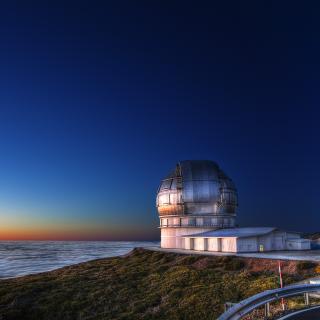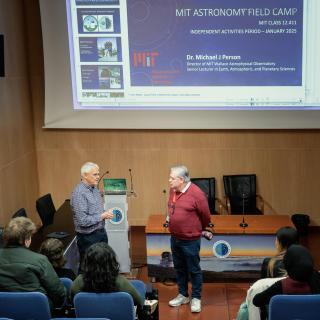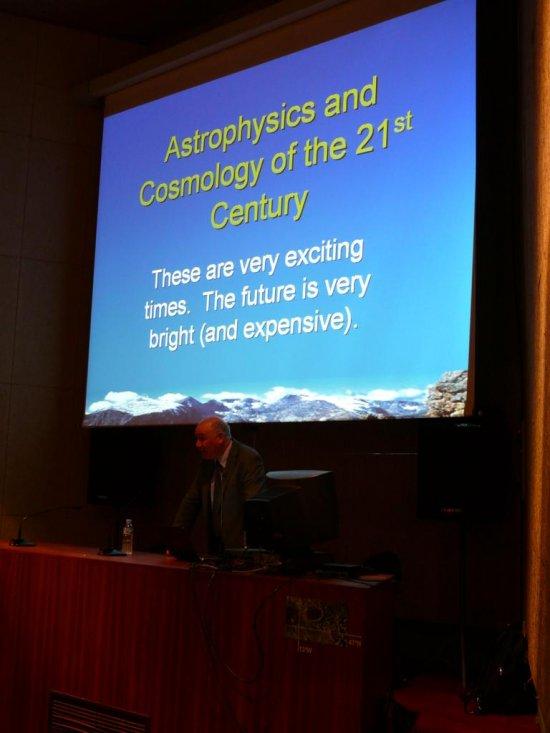It may interest you
-
 The European Space Agency’s Euclid mission released its first batch of survey data, including a preview of its deep fields. Using Artificial Intelligence (AI) algorithms in combination with citizen science campaigns, the Euclid Consortium scientific results include the discovery of strong gravitational lensing systems, the exploration of galaxy clusters and the cosmic web, the characterisation of active galactic nuclei (AGN) and quasars, studies on galaxy evolution and morphology, and the identification of numerous dwarf galaxies and transients. Spain has an important role in the EuclidAdvertised on
The European Space Agency’s Euclid mission released its first batch of survey data, including a preview of its deep fields. Using Artificial Intelligence (AI) algorithms in combination with citizen science campaigns, the Euclid Consortium scientific results include the discovery of strong gravitational lensing systems, the exploration of galaxy clusters and the cosmic web, the characterisation of active galactic nuclei (AGN) and quasars, studies on galaxy evolution and morphology, and the identification of numerous dwarf galaxies and transients. Spain has an important role in the EuclidAdvertised on -
 The Instituto de Astrofísica de Canarias (IAC) is one of the international researches centres which is following actively the asteroid 2024 YR4 which has been qualified by the United Nations (UN) as potentially dangerous, because it has a 1.5% probability of impacting the Earth during 2032.The asteroid was discovered in 2024 and has an estimated size of between 40 and 90 metres. Given these figures, the UN has activated the protocols of planetary defence to obtain more accurate estimates of the orbit, the size and the threat which might be presented by 2024 YR4. The protocols of the UN areAdvertised on
The Instituto de Astrofísica de Canarias (IAC) is one of the international researches centres which is following actively the asteroid 2024 YR4 which has been qualified by the United Nations (UN) as potentially dangerous, because it has a 1.5% probability of impacting the Earth during 2032.The asteroid was discovered in 2024 and has an estimated size of between 40 and 90 metres. Given these figures, the UN has activated the protocols of planetary defence to obtain more accurate estimates of the orbit, the size and the threat which might be presented by 2024 YR4. The protocols of the UN areAdvertised on -
 This January, the Instituto de Astrofísica de Canarias is hosting, for the third time, the ‘ MIT Astronomy Field Camp’, the historic scientific camp that the Massachusetts Institute of Technology (MIT) offers to its students of planetary sciences and astronomy with the aim of providing them with the real experience of working in a professional observatory. On this occasion, nine students have been at the Teide Observatory, in Tenerife, since 7th January, where they have carried out various astronomical observations. Dr. Michael Person has been the coordinator of this activity that began inAdvertised on
This January, the Instituto de Astrofísica de Canarias is hosting, for the third time, the ‘ MIT Astronomy Field Camp’, the historic scientific camp that the Massachusetts Institute of Technology (MIT) offers to its students of planetary sciences and astronomy with the aim of providing them with the real experience of working in a professional observatory. On this occasion, nine students have been at the Teide Observatory, in Tenerife, since 7th January, where they have carried out various astronomical observations. Dr. Michael Person has been the coordinator of this activity that began inAdvertised on
